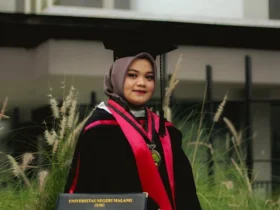Admission Requirements for Online Masters Programs in 2025
Enrolling in an online Master’s program in 2025 offers flexibility and access to advanced education for professionals and lifelong learners. However, admission requirements vary across institutions and fields, such as business (MBA), education, engineering, and data science. Understanding prerequisites, standardized test requirements (GRE/GMAT), work experience expectations, and application processes is crucial for prospective students. This article provides a comprehensive overview of these requirements, drawing on current trends and data from leading U.S. universities offering accredited online Master’s programs.
General Prerequisites
Most online Master’s programs share common prerequisites to ensure applicants are prepared for graduate-level study. These typically include:
- Bachelor’s Degree:
- A bachelor’s degree from an accredited institution is required. Regional accreditation (e.g., Higher Learning Commission, Southern Association of Colleges and Schools) is preferred.
- The degree does not always need to match the Master’s field. For example, many data science programs accept applicants from diverse backgrounds (e.g., humanities, business), provided they meet other criteria.
- A minimum GPA of 3.0 (on a 4.0 scale) is standard, though some programs accept lower GPAs (e.g., 2.5) with additional requirements like work experience or test scores. For instance, the University of Florida’s online Master’s programs often require a 3.0 GPA but may consider 2.75 with justification.
- Transcripts:
- Official transcripts from all post-secondary institutions attended are required.
- Some programs, like Georgia Tech’s Online Master of Science in Computer Science (OMSCS), require transcripts to verify prerequisite coursework (e.g., calculus, programming).
- English Proficiency (International Students):
- Non-native English speakers must submit TOEFL, IELTS, or Duolingo English Test scores. Minimum scores vary (e.g., TOEFL iBT: 80–100; IELTS: 6.5–7.0).
- Exemptions apply for applicants with degrees from English-speaking countries or institutions.
- Prerequisite Coursework:
- Some programs require specific undergraduate courses. For example:
- Engineering: Calculus, physics, or programming (e.g., Purdue’s online M.S. in Engineering).
- Data Science: Statistics, linear algebra, or programming (e.g., Johns Hopkins’ M.S. in Data Science).
- Education: Teaching certification for certain M.Ed. tracks (e.g., USC’s Master of Arts in Teaching).
- Bridge courses or MOOCs may be offered to meet prerequisites (e.g., Georgia Tech’s OMSCS recommends preparatory courses).
- Some programs require specific undergraduate courses. For example:
Standardized Tests (GRE/GMAT)
Standardized tests like the GRE or GMAT are often required but increasingly optional for online Master’s programs in 2025, reflecting a shift toward holistic admissions.
- GRE (Graduate Record Examination):
- Required by some programs, particularly in engineering and data science. For example:
- Georgia Tech’s online M.S. in Engineering prefers GRE scores but waives them for applicants with strong GPAs or work experience.
- University of Illinois Urbana-Champaign’s M.S. in Computer Science is test-optional but recommends GRE for competitive applications.
- Typical score expectations: 300–310 combined (Verbal + Quantitative), with higher scores (315+) for top programs like Stanford or MIT.
- Many programs waive GRE requirements for applicants with 3–5 years of relevant experience or high GPAs (e.g., 3.5+).
- Required by some programs, particularly in engineering and data science. For example:
- GMAT (Graduate Management Admission Test):
- Primarily required for online MBA programs, though waivers are common.
- Examples:
- University of North Carolina’s MBA@UNC recommends GMAT (average score: 650–700) but waives it for applicants with 5+ years of professional experience or advanced degrees.
- Indiana University’s Kelley School of Business offers test-optional admissions for its online MBA, focusing on work history and undergraduate performance.
- GMAT waivers are often granted for applicants with strong professional backgrounds, such as management roles or certifications (e.g., CPA, CFA).
- Trends in 2025:
- Over 60% of online Master’s programs are test-optional, especially for education and business programs, due to increased emphasis on work experience and diversity.
- When required, GRE/GMAT scores are used to assess analytical and quantitative skills, particularly for STEM fields.
- Some programs accept alternative assessments, such as professional certifications (e.g., PMP for project management) or portfolio submissions for data science.
Work Experience
Work experience requirements vary by program and field, with some programs prioritizing professional backgrounds and others welcoming recent graduates.
- Business (MBA):
- Most online MBA programs prefer 2–5 years of professional experience, ideally in management or leadership roles.
- Examples:
- USC’s Marshall School online MBA recommends 3+ years of work experience but accepts strong candidates with less.
- Penn State World Campus waives work experience requirements for applicants with exceptional academic records.
- Part-time or executive MBAs often require 5–10 years of experience, targeting mid-career professionals.
- Education:
- M.Ed. programs for current teachers often require a valid teaching license or 1–2 years of classroom experience (e.g., University of Florida’s M.Ed. in Curriculum and Instruction).
- Programs like USC’s Master of Arts in Teaching (MAT) accept applicants without teaching experience but require fieldwork or practicums for licensure tracks.
- Engineering:
- Many programs, like Georgia Tech’s online M.S. in Aerospace Engineering, do not require work experience but value it for practical coursework.
- Professional Master’s programs (e.g., Stanford’s Honors Cooperative Program) may prefer 2+ years of engineering experience.
- Data Science:
- Work experience is typically optional but strengthens applications, especially for programs like Johns Hopkins’ M.S. in Data Science, which values data analysis or programming experience.
- Some programs (e.g., University of Texas at Austin) accept recent graduates with strong technical skills demonstrated through coursework or projects.
- Documentation:
- Applicants submit resumes or CVs detailing relevant experience, skills, and achievements.
- Professional certifications (e.g., PMP, AWS, CFA) can compensate for limited experience.
Application Processes
The application process for online Master’s programs is streamlined and typically conducted entirely online. Key components include:
- Online Application Portal:
- Most universities use centralized platforms (e.g., Common App for graduate programs or proprietary systems like ApplyWeb).
- Application fees range from $50–$125 (e.g., $70 at University of Florida, $125 at Stanford). Fee waivers are available for financial hardship or military applicants.
- Required Materials:
- Statement of Purpose (SOP): A 1–2-page essay outlining academic goals, career objectives, and reasons for choosing the program. For example, MBA applicants emphasize leadership experience, while data science applicants highlight technical interests.
- Letters of Recommendation: 2–3 letters from academic advisors, professors, or supervisors. Online programs often prefer professional references for working applicants.
- Resume/CV: Highlights academic background, work experience, skills, and certifications.
- Transcripts: Official copies sent electronically or by mail.
- Test Scores: GRE/GMAT (if required) or TOEFL/IELTS for international students.
- Portfolio (if applicable): Required for some data science or engineering programs to showcase projects or coding skills (e.g., GitHub repositories).
- Deadlines:
- Rolling admissions are common for online programs, allowing year-round applications (e.g., Penn State World Campus, ASU).
- Fixed deadlines apply to competitive programs (e.g., Stanford’s M.S. in Engineering: December for fall admission).
- Early application (3–6 months before start date) is recommended to secure financial aid or scholarships.
- Interviews:
- Some programs, particularly MBAs (e.g., UNC’s MBA@UNC), require virtual interviews to assess fit and motivation.
- Education programs may include interviews for licensure tracks to evaluate teaching potential.
- Additional Requirements:
- Background checks for education programs involving student teaching.
- Technical requirements (e.g., programming proficiency for data science or engineering).
- Supplemental essays for specific programs (e.g., USC’s MAT requires essays on educational philosophy).
Field-Specific Requirements
- MBA:
- Emphasis on leadership experience, GMAT (if not waived), and a strong SOP.
- Example: Indiana University’s Kelley School requires a resume showcasing 2+ years of professional experience or a GMAT score above 650.
- Education:
- Teaching license for M.Ed. tracks; MAT programs may require fieldwork agreements.
- Example: USC’s MAT requires a bachelor’s degree and a commitment to complete 600 hours of student teaching.
- Engineering:
- Strong quantitative background (e.g., calculus, physics). GRE often optional.
- Example: Purdue’s M.S. in Engineering requires undergraduate coursework in math and science but waives GRE for 3.0+ GPA applicants.
- Data Science:
- Proficiency in statistics, programming (e.g., Python, R), or math. Portfolios or GitHub projects enhance applications.
- Example: University of Texas at Austin’s M.S. in Data Science requires introductory programming and statistics courses but no work experience.
Trends in 2025
- Test-Optional Policies: Over 60% of online Master’s programs are test-optional, prioritizing work experience, GPAs, and portfolios to broaden access.
- Holistic Admissions: Universities emphasize diverse backgrounds, reducing reliance on standardized tests and valuing professional achievements.
- Streamlined Applications: Online portals and rolling admissions make applying easier, with faster decisions (2–6 weeks).
- Increased Accessibility: Programs like Georgia Tech’s OMSCS accept applicants with non-traditional backgrounds, provided they complete prerequisite courses.
- International Considerations: More programs offer TOEFL/IELTS waivers for students with English-medium bachelor’s degrees.
Tips for Applicants
- Verify Accreditation: Ensure the program is accredited by a recognized body (e.g., HLC, AACSB) via the Council for Higher Education Accreditation (CHEA).
- Tailor Your SOP: Highlight how the program aligns with your career goals and showcase relevant skills or experience.
- Secure Strong Recommendations: Choose recommenders who know your professional or academic strengths well.
- Prepare Early: Start gathering materials (transcripts, test scores) 6–12 months before deadlines to avoid delays.
- Leverage Experience: Highlight certifications, projects, or leadership roles to offset lower GPAs or test scores.
- Explore Waivers: Check for GRE/GMAT waivers based on experience or GPA, and apply for application fee waivers if eligible.
- Contact Admissions: Reach out to program advisors (e.g., via virtual info sessions) to clarify requirements or discuss prerequisites.
System: * Today’s date and time is 01:27 AM EAT on Thursday, May 22, 2025.








Tuachie Maoni Yako